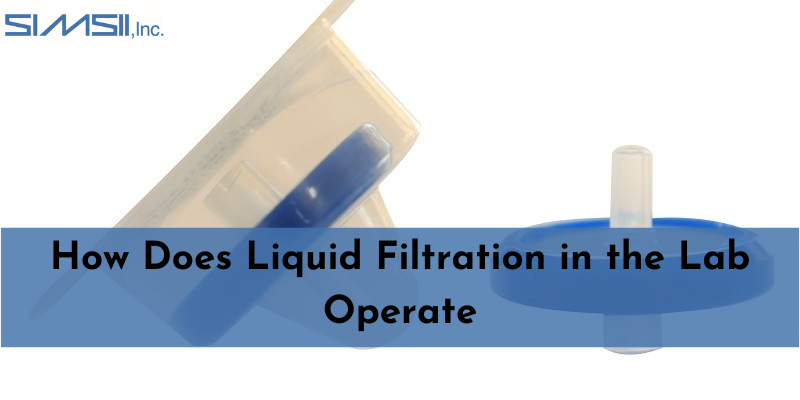
Filtration is a captivating sterilization method employed in laboratories, relying on physical separation rather than microbial extermination. It involves the passage of liquids or gases through pores that hinder the passage of larger particles. Pore sizes determine the effectiveness of filtration, where smaller pores can screen out more particles. Tiny pore sizes as 0.01 μm can impede viruses, although smaller proteins may still traverse. Nano-filters offer smaller pores that are capable of arresting viruses, proteins, and select toxins. Let us explore further the Syringe filter with Simsii for additional insights.
How Does Filtration Work? What is it
Filtration is a unique sterilization method that separates microorganisms from the sterilized medium without killing them. Unlike other sterilization methods that deactivate or kill bacteria and viruses, filtration physically removes them. It utilizes membranous filters with small pores that allow liquid to pass through while preventing larger particles, such as bacteria from passing through the filter. The effectiveness of filtration depends on the size of the pores, with smaller pores being more efficient in blocking microorganisms. This filtration mechanism can remove the living organism from the substance effectively.
Filtration Techniques
Reverse osmosis, nano-, ultra-, micro-, and particle filtration are a few examples of different filtration methods. We are not going to discuss these techniques, but you should recognize that multiple techniques exist and are suitable for specific applications.
Liquid Filtration in a Laboratory
The use of filters in the laboratory is to remove microbes from liquids, especially for heat-sensitive substances. Let us see the four main types of filters used
1 Membrane filters are used to sterilize injections and are typically constructed of cellulose. They are placed between the syringe and the needle to prevent microbial contamination.
2 Seits filters frequently include asbestos, are thicker, and more resemble pads. They offer effective filtration and are an alternative to membrane filters.
3 Sintered glass filters don't absorb liquids as they work because they are made up of glass. They provide an efficient means of removing microbes from liquids.
4 Candle filters are made of clay-like mud with tiny pores made of algae. Candle filters are unique filters that trap microbes as they pass through the pores. They offer an effective filtration method for microbial removal.
Each liquid filter has its advantages and disadvantages. And it allows labs to select the most suitable option for sterilization.
Applications of Liquid Filtration
Liquid filtration is a versatile method to remove various particles from a solution. On selecting filters with specific pore sizes, liquid filtration can effectively eliminate viruses, proteins, and toxins. Unlike other sterilization methods, liquid filtration does not rely on heat, making it a suitable option for sterilizing heat-sensitive liquids. This benefit makes liquid filtration an ideal solution for applications where maintaining the integrity of the liquid is crucial while achieving sterilization.
Advantages and Disadvantages of Filtration
Advantages
1 Usually, filters are inexpensive, except filters with small pores sizes
2 Filters do not clog easily
3 Filters are suitable for heat-sensitive liquids because they don't use heat
4 They can filter enormous amounts of liquids reasonably quickly
Disadvantages
1 Filters are applicable for only gasses and liquids
2 Filters are costly to replace, especially nano-filters, hence autoclaving is typically more affordable than filtering
3 Glass filters are easily breakable due to their brittle quality
4 Membrane filters are prone to rupture
5 There are chances of clogging
6 Filter pad in Sietz filters may absorb the solution itself
Wrapping Up
In this post, you have read about liquid filtration in the lab, its application, advantages, disadvantages, and more. After reading this post, may you become aware of how to choose filtration for your business or work. If still, you are not aware and not able to choose the perfect membrane filters for your work, you can approach Simsii for your filtration process.


